
One of the great film additions that 2023 left me was the name of Aki Kaurismäki, a Finnish director and screenwriter who released his most recent film Fallen Leaves last year, which I loved. Until then I had not seen anything of his and although I wanted to familiarize myself with his work before going to that premiere, the truth is that it is now, a month later, when I have been able to see another of his best-known stories.
Una de las grandes adiciones fílmicas que me dejó el 2023 fue el nombre de Aki Kaurismäki, un director y guionista finlandés que estrenó el año pasado su más reciente película Fallen Leaves, que me encantó. Hasta entonces no había visto nada suyo y aunque quise familiarizarme con su obra antes de ir a ese estreno, la verdad es que es ahora, un mes después, cuando he podido ver otra de sus historias más conocidas.
Mies vailla menneisyyttä (The Man Without a Past) is a film that, like the only other film by the director that I have seen, mixes several genres. In this case it is a drama, with black comedy and romance that also incorporates a bit of thriller and social themes (which apparently are present in all of Kaurismäki's stories) to talk about identity and humanity. The film begins with a man traveling on a train and getting off in Helsinki. We don't know who he is or what he's coming for, we don't know if he's coming to the city or if he's returning from a trip, we don't know if he's coming for work or pleasure, we don't know anything about anything. And we stay like this because a few minutes into the film some criminals beat him to rob him and after leaving him battered, lying on the grass, with the contents of his suitcase scattered on the ground, when the man is treated at a hospital, He has lost his memory. Some strong concussion, a blow to the head or something, has affected the part of his brain in charge of memories and the man barely remembers a train. His wallet, in which his identification was, was discarded by the criminals who stole more than money from him: they left him without his name and without his past. However, a situation that would despair many does not seem to shake our protagonist much, who almost immediately begins to look for a way to survive on the outskirts of a city he does not know (?)
Mies vailla menneisyyttä (The Man Without a Past) es una película que, al igual que la única otra del director que he visto, mezcla varios géneros. En este caso se trata de un drama, con comedia negra y romance que incorpora también un poco de thriller y temas sociales (que por lo visto están presentes en todas las historias de Kaurismäki) para hablar de la identidad y de la humanidad. La película inicia con un hombre que viaja en un tren y se baja en Helsinki. No sabemos quién es ni a qué viene, no sabemos si está llegando a la ciudad o si está volviendo de un viaje, no sabemos si viene por trabajo o por placer, no sabemos nada de nada. Y nos quedamos así porque a los pocos minutos de iniciada la cinta unos delincuentes lo golpean para robarlo y después de dejarlo maltrecho, tirado en el césped, con el contenido de su maleta desperdigado por el suelo, cuando el hombre es atendido en un hospital, ha perdido la memoria. Alguna contusión fuerte, un golpe en la cabeza o algo, ha afectado la parte de su cerebro encargada de los recuerdos y el hombre apenas recuerda un tren. Su billetera, en la cual estaba su identificación, fue desechada por los delincuentes que le robaron más que dinero: le dejaron sin su nombre y sin su pasado. Sin embargo, una situación que desesperaría a muchos no parece sacudir mucho a nuestro protagonista quien casi de inmediato comienza a buscarse la forma de sobrevivir en las periferias de una ciudad que no conoce (?).
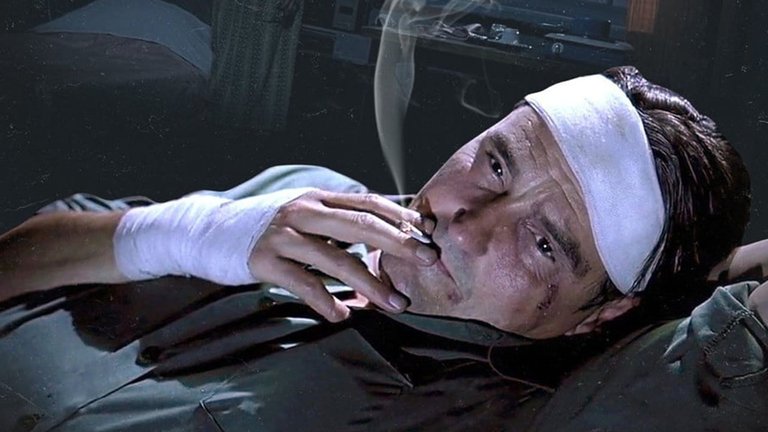
From there his life becomes a parade of adventures, less successes than failures, because - as is normal - he generates suspicion in the people who cross his path. How can you trust someone who appears out of nowhere and who You don't even know who he is? is he lying? Is he hiding something? Doubts invade the other characters, especially at the beginning, and the viewer as well, particularly after his last scene in the hospital (of which I will not say anything to avoid spoilers).
A partir de allí su vida se convierte en un desfile de aventuras, menos aciertos que desaciertos, porque - como es normal - genera suspicacia en la gente que se le cruza en el camino, ¿cómo confiar en alguien que aparece de la nada y que ni siquiera sabe quién es? ¿estará mintiendo? ¿estará ocultando algo? Las dudas invaden a los demás personajes, sobre todo al principio, y al espectador también, particularmente después de su última escena en el hospital (de la cual no diré nada para no hacer spoilers).
Now, if one gets too picky, one may begin to question the veracity of the script. When a person loses part of their memories, how does it happen to them? Is it really possible for a man not to remember his name or anything about his life and yet remember an entire language and a trade? Or to say something else, can you maintain the economic notions of the time and talk about cheap and expensive things? Can you forget your name and remember Rock? Can you forget your address but know how to plant potatoes? If I warn this it is precisely so that those who decide to see the film do not take that path because the veracity of the protagonist's medical condition is not what is important, but rather what happens in the film and the things that it makes us think, like what makes us who we are? Our memories or our present desires? Can we love someone about whom we know absolutely nothing? It strikes me that somehow these same issues are raised in the film that I reviewed last week Little Fish although in a different way, could it be that I have to reflect more on love and memory? Because yes, in The Man Without a Past there is a love story, adult, proletarian and strange, just like the one in Fallen Leaves, although perhaps less charming than that one because more things happen here beyond the margins of that romance.
Ahora bien, si uno se pone quisquilloso puede comenzar a cuestionar la veracidad del guión. Cuando una persona pierde parte de sus recuerdos, ¿cómo le ocurre? ¿en verdad es posible que un hombre no recuerde su nombre o nada de su vida y sin embargo recuerde todo un idioma y un oficio? O por decir algo más, ¿puede mantener las nociones económicas de la época y hablar de cosas baratas y caras? ¿puede olvidar su nombre y recordar el Rock? ¿puede olvidar su dirección pero saber cómo sembrar papas? Si advierto esto es precisamente para que quienes se decidan a ver la película no tomen ese camino porque la veracidad de la condición médica del protagonista no es lo importante, sino lo que sucede en la película y las cosas que nos hace pensar, ¿qué nos hace ser quiénes somos? ¿nuestros recuerdos o nuestros deseos presentes? ¿podemos amar a alguien de quien no sabemos absolutamente nada? Me llama la atención que de alguna manera estos mismos temas se plantean en la película que reseñé la semana pasada Little Fish aunque de forma distinta, ¿será que tengo que reflexionar más sobre el amor y la memoria? Porque sí, en The Man Without a Past hay una historia de amor, adulta, proletaria y extraña, así como la que hay en Fallen Leaves, aunque tal vez menos encantadora que aquella porque aquí suceden más cosas más allá de los márgenes de ese romance.
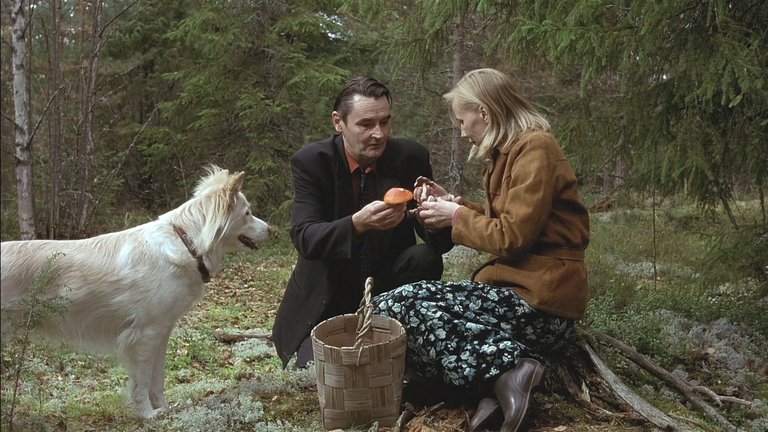
The cinematography, the direction, the script, the editing, are similar to those of Fallen Leaves, but Kaurismäki's evolution is noticeable (this film was released twenty years ago) although his own style is clearly identified. However, beyond the technical elements of the film, what I liked most is that it makes you think about identity and the possibility of being another. Many of us have wanted to start over, but would it be worth starting from scratch by forgetting who we are? And if one day we wake up and don't remember anything, would we like to know? Or would we prefer to start a life wherever we are without the possibility of looking back? And if we know someone to whom that happens, what would we do? Would we let him be happy with his present? Would we be forced to tell him the truth? Would we help him? Would we trust someone who doesn't remember who they are, despite the risks involved? All that and more comes from reflecting on this story and I like it because, just like art, good cinema is not only about the work and the author, but also about oneself. Have any of you seen this film? ? I read you in the comments.
La fotografía, la dirección, el guión, el montaje, son similares a los de Fallen Leaves, pero se nota la evolución de Kaurismäki (esta película se estrenó hace veinte años) aunque se identifique claramente un estilo propio. Sin embargo, más allá de los elementos técnicos de la película, lo que más me gustó es que te hace pensar en la identidad y en la posibilidad de ser otro. Muchos de nosotros hemos querido empezar de nuevo, pero ¿valdría la pena empezar de cero olvidando quiénes somos? Y si un día despertamos y no recordamos nada ¿nos gustaría saberlo? ¿o preferiríamos empezar una vida allí en donde estemos sin la posibilidad de mirar atrás? Y si conocemos a alguien a quien le pasa eso, ¿qué haríamos? ¿lo dejaríamos ser feliz con su presente? ¿nos veríamos oblligados a decirle la verdad? ¿lo ayudaríamos? ¿confiaríamos en alguien que no recuerda quién es, a pesar de los riesgos que conlleva? Todo eso y más se desprende de la reflexión de esta historia y me gusta porque, así como el arte, el buen cine no se trata sólo de la obra y del autor, sino también de uno mismo, ¿alguno de ustedes ha visto esta película? Los leo en los comentarios.
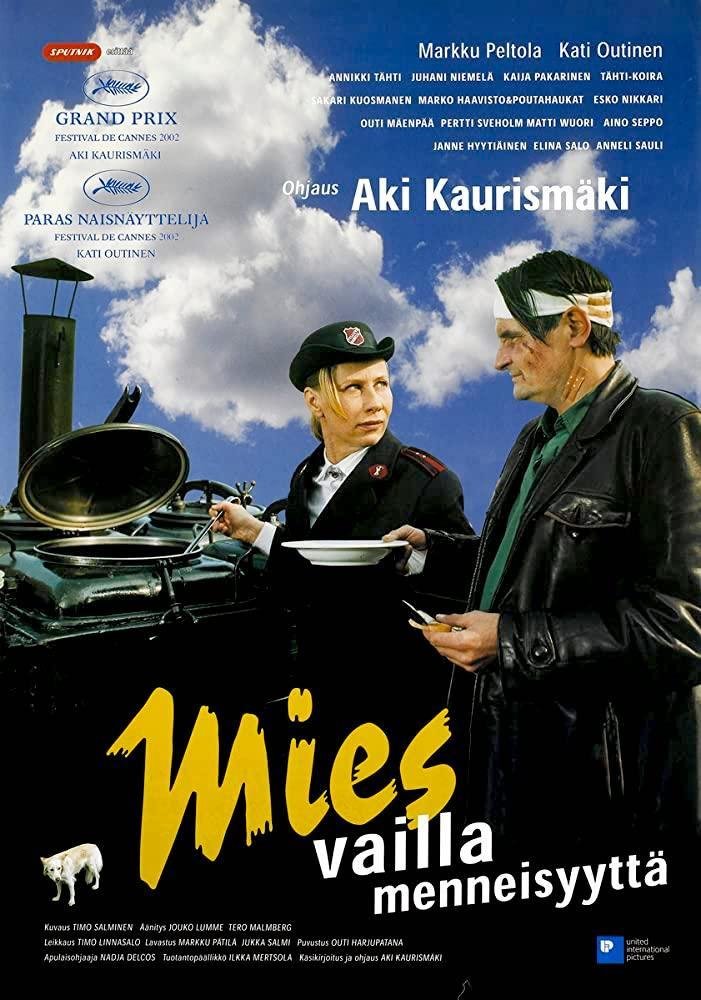
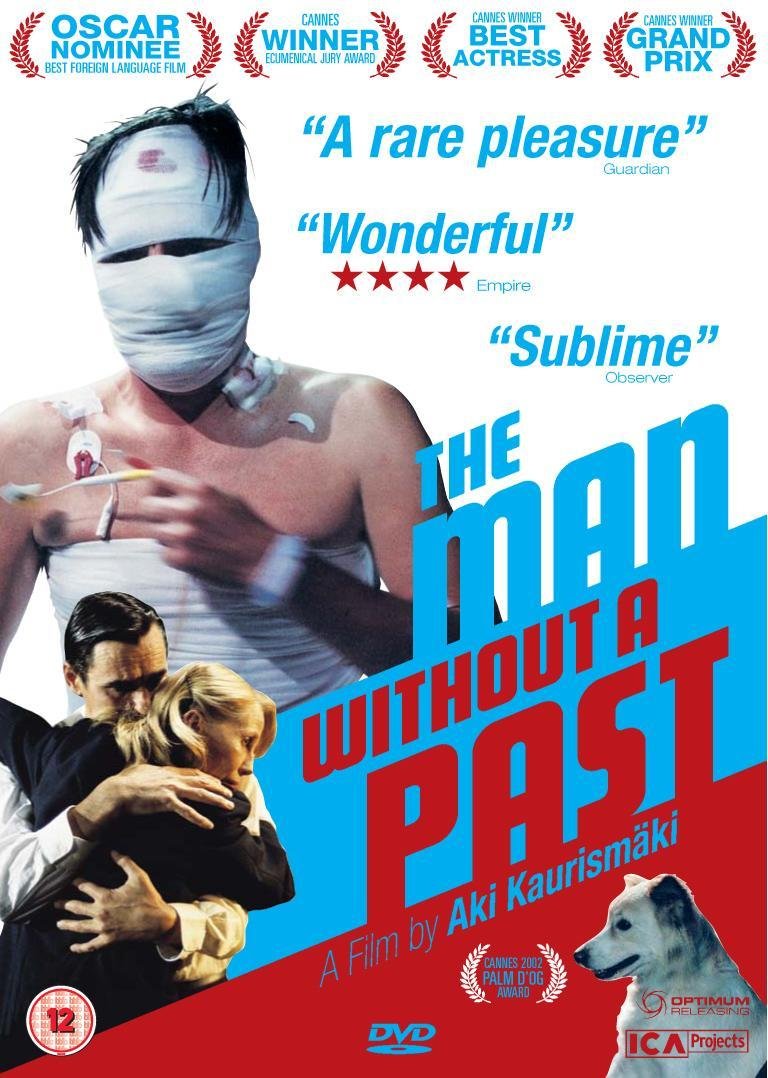
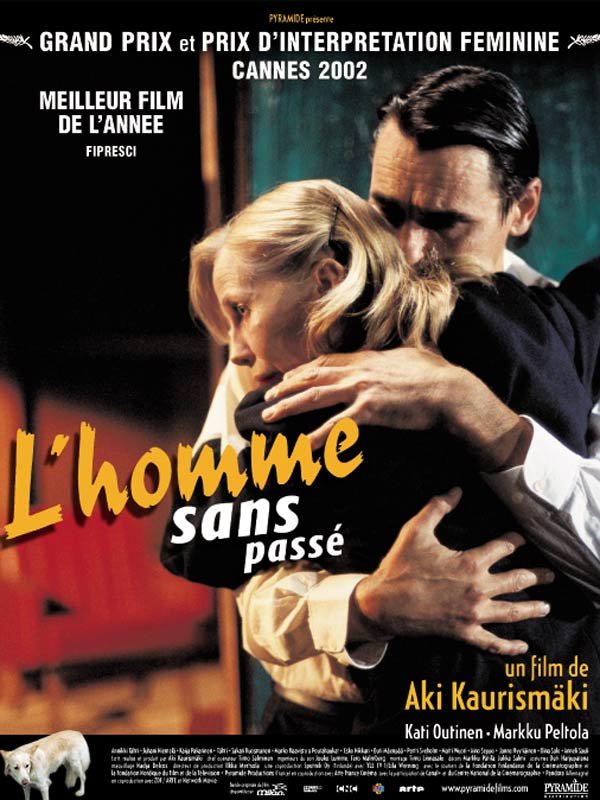
No he tenido la oportunidad de verla, pero intriga el contexto. Es peculiar el hecho de que no recuerde su nombre y si lo que hacia, lo que le gusta. Intrigante.
This is interesting, it has been a long time since I watched a kind of this movie before. Good evening!